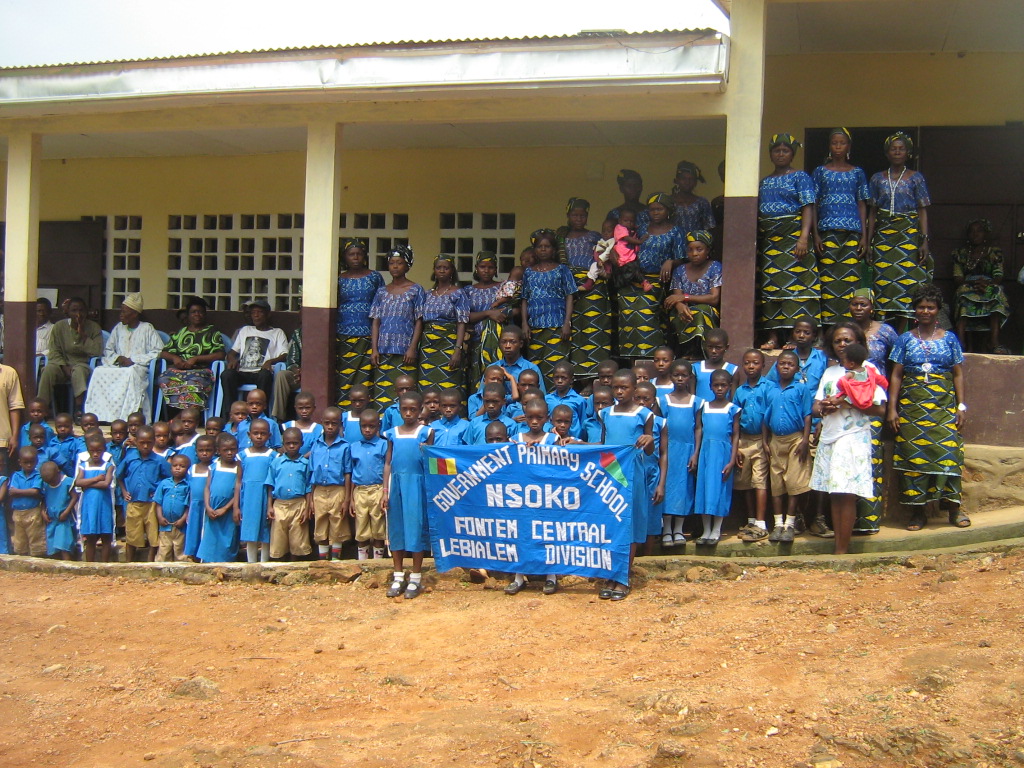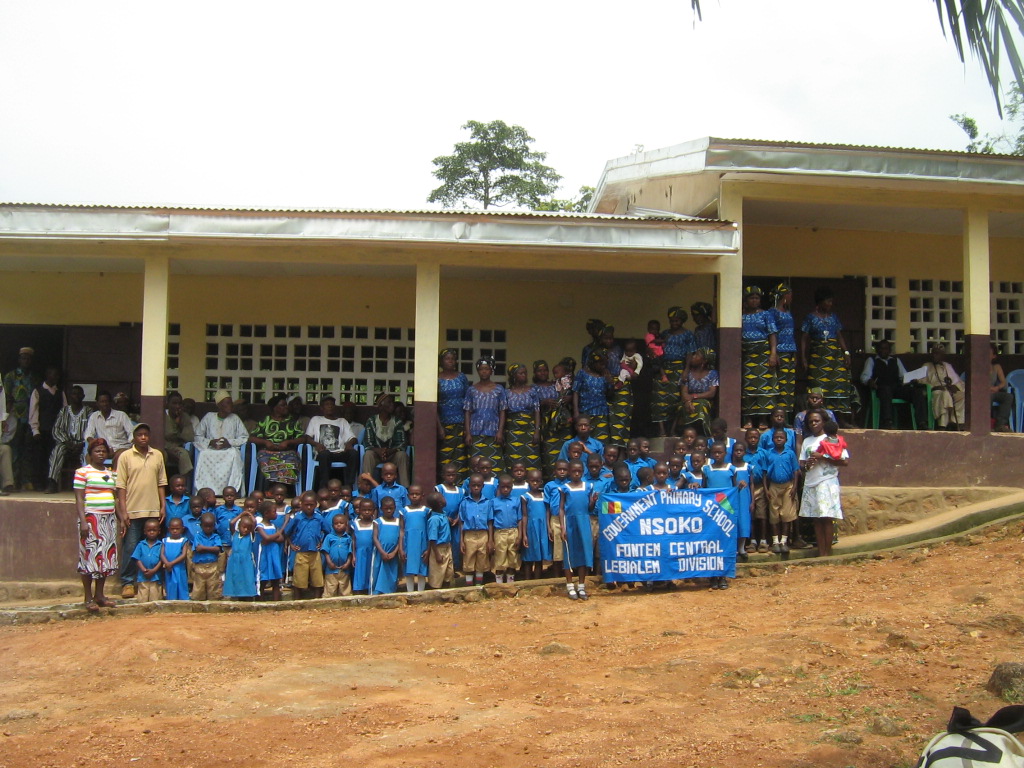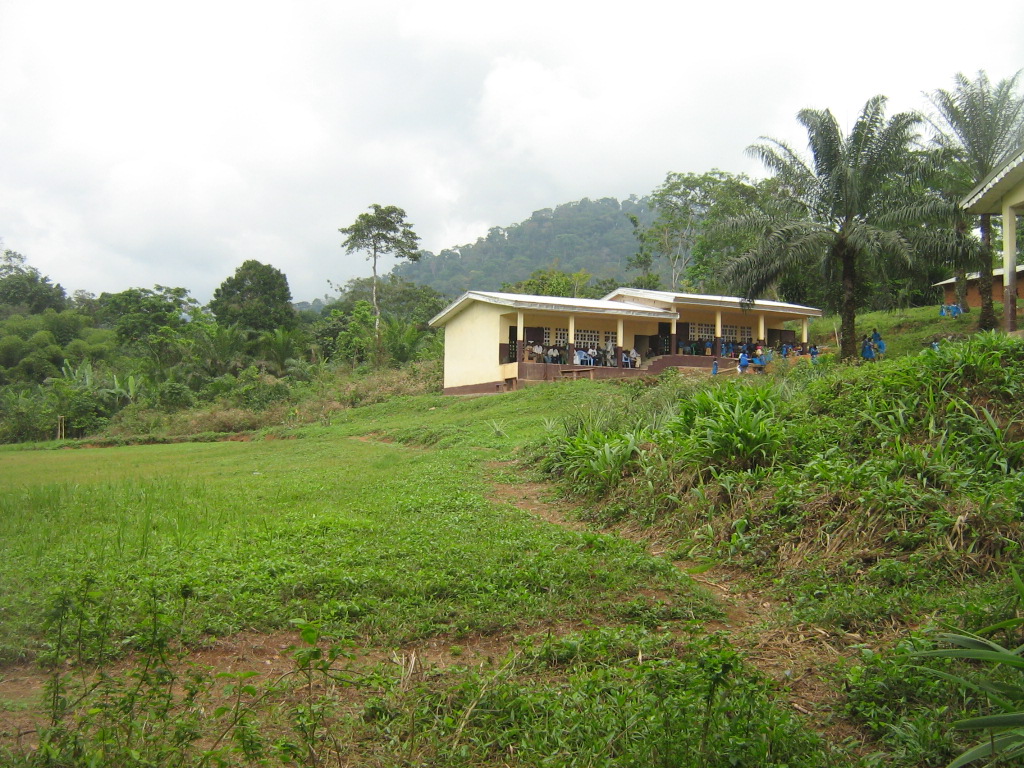
G.S. NSOKO
Nsoko is a small and isolated village on the outskirts of the Lebialem district. Due to its inaccessibility, the area is poorly developed and largely cut off from government funding. In the past, the idea of education was an afterthought. Most parents in Nsoko remember attending school, but many dropped out due to lengthy walking distances, a lack of interest or for financial reasons. In 2011, ICA announced that the community of Nsoko would receive a new school. The project was quickly completed by the locals and it opened in 2012. Nsoko now boasts not only a modern school, but a new attitude towards education. Feida, mother of three, says “we [the parents of Nsoko] went to school because we were told to go – now we see the value of education”. Within a decade, G.S. Nsoko has tripled its attendance, rising from 30 pupils to 90.
| Headmaster | Mr. Fidelis |
|---|---|
| Number of Teachers | 5 Gov’t |
| Number of Pupils | 55 boys, 44 girls |
| Graduation Rate in 2014 | 8/8, 100% |
| Construction Year | 2012 |
The only thing more beautiful than the new building is the setting in which it sits. The school is located on a hill, which overlooks a flat, green, soccer pitch and a nearby river. The Nsoko community is proud to use the school grounds as a venue to celebrate Cameroon independence day. Neighbouring schools, such as G.S. Fossung and G.S. Atungeh, flock to G.S. Nsoko to attend such festivities. The school has become a focal point for celebration.
The solar lights have added a different element of change. The pupils are able to stay up past dark in order to continue their studies. Hopefully this type of work ethic will help students like Marissa realize her dream: “I like school because my education can help me be a nurse”.
Possibilities for continued development
The number one priority of the Nsoko community is to secure clean drinking water for the students. The nearby river provides a source of water, but it is untreated . The school suffers from a high absenteeism due to water-borne illnesses. As the headmaster, Mr. Fidelis, aptly stated “if there is no water, there is no life”. The community also suffers from a lack of communication and access to the outside world. There is no electricity, no cellular coverage and the routes are difficult to bypass, especially in the rainy season. In the event of an emergency, getting a patient to a proper healthcare facility is very difficult. Additionally, due to the lack of electricity, there are very few electronics in the village making subjects like home economics and computer science difficult to teach.
Summary
G.S. Nsoko has successfully changed the philosophy of education for the better. The school grounds have instilled a sense of pride within the wider community and education itself has improved. As one mother reports “due to the new building, the learning atmosphere is better and the school is clean. The pupils are not distracted as much in the new classrooms”.





